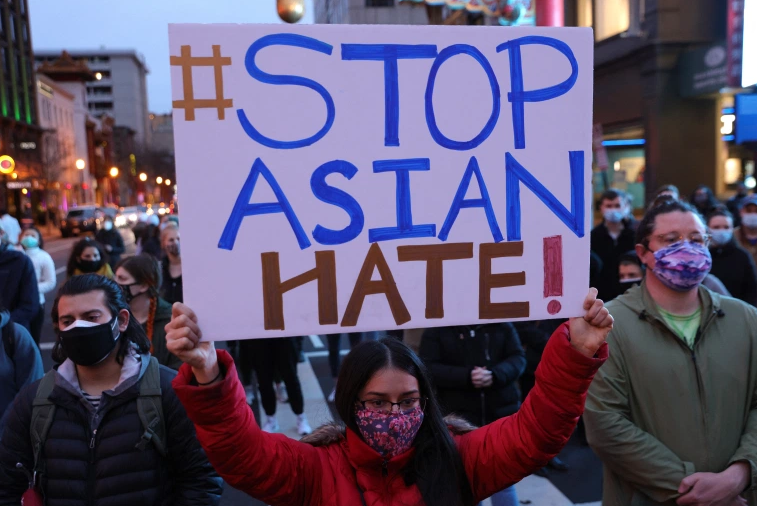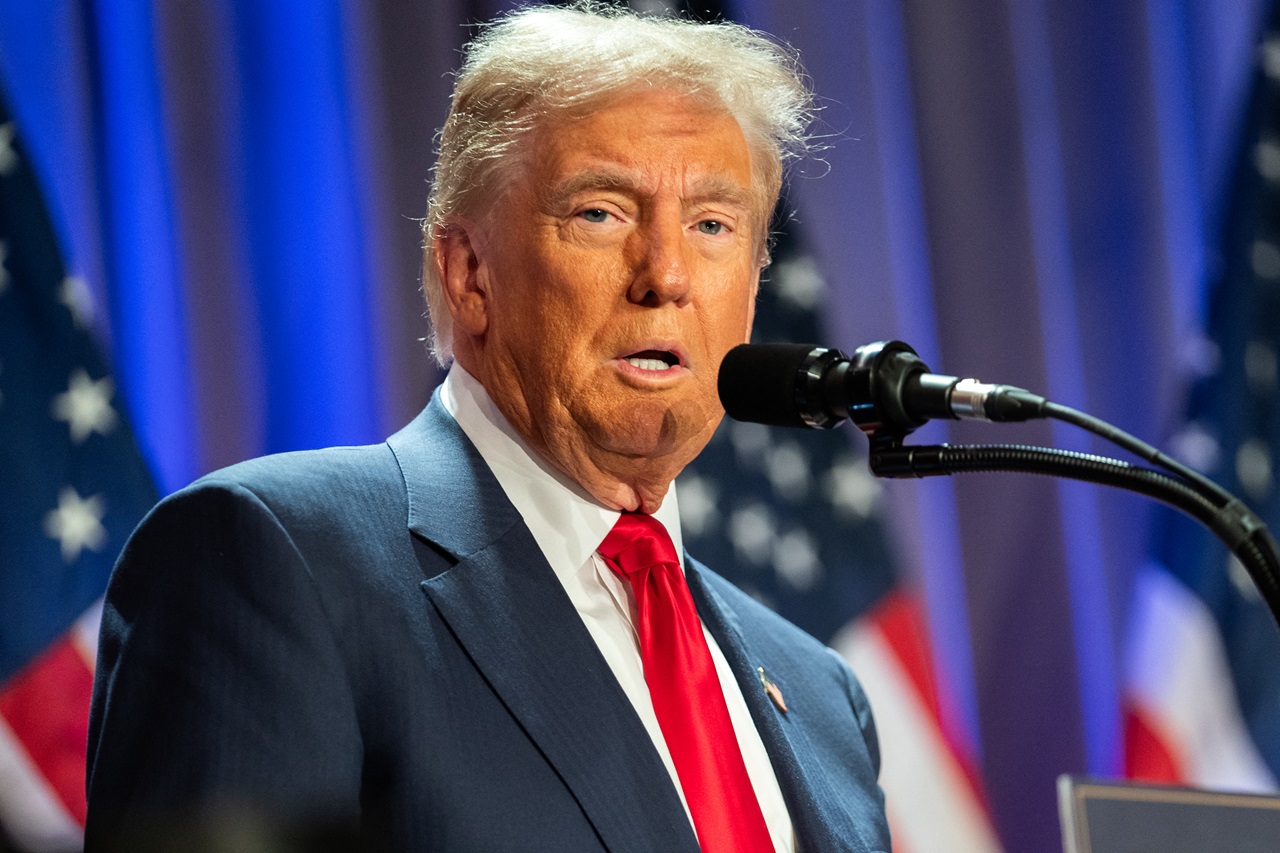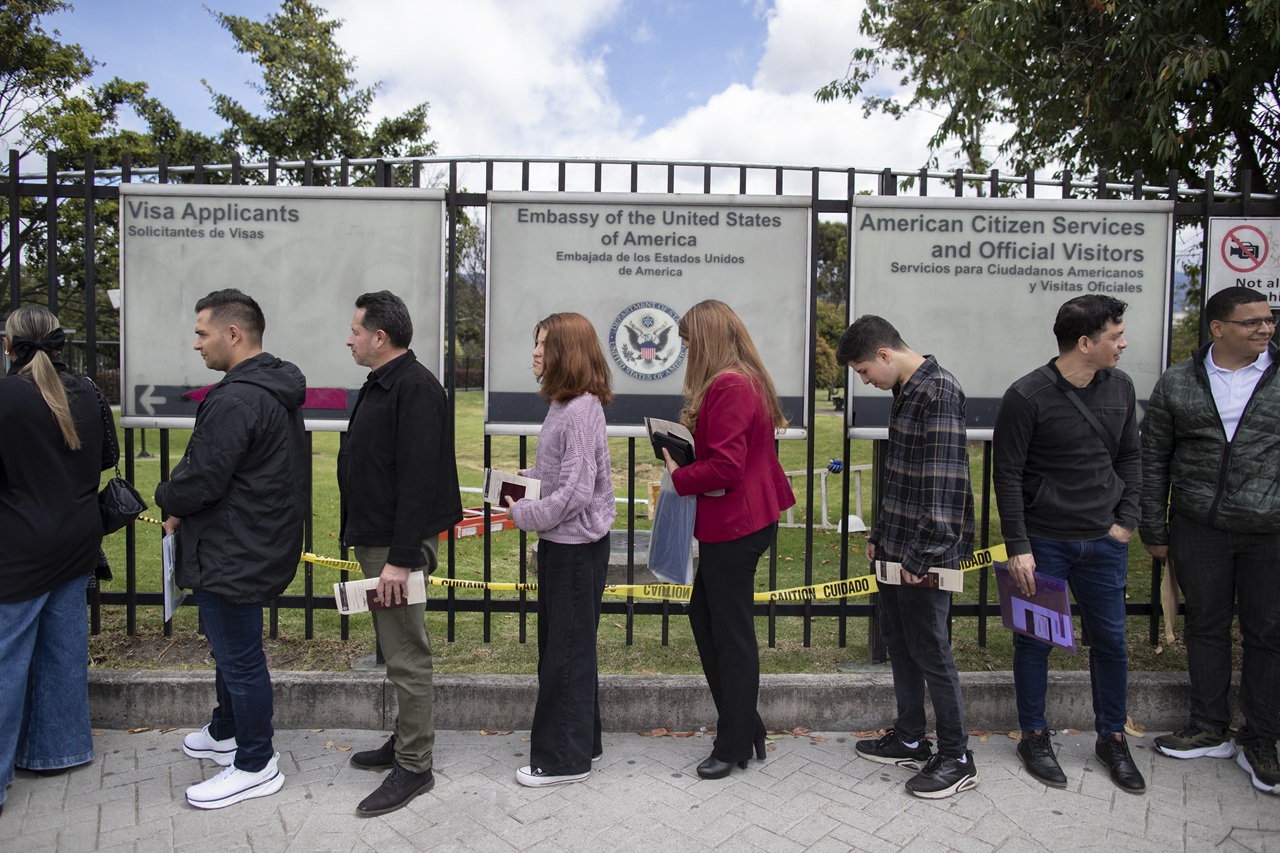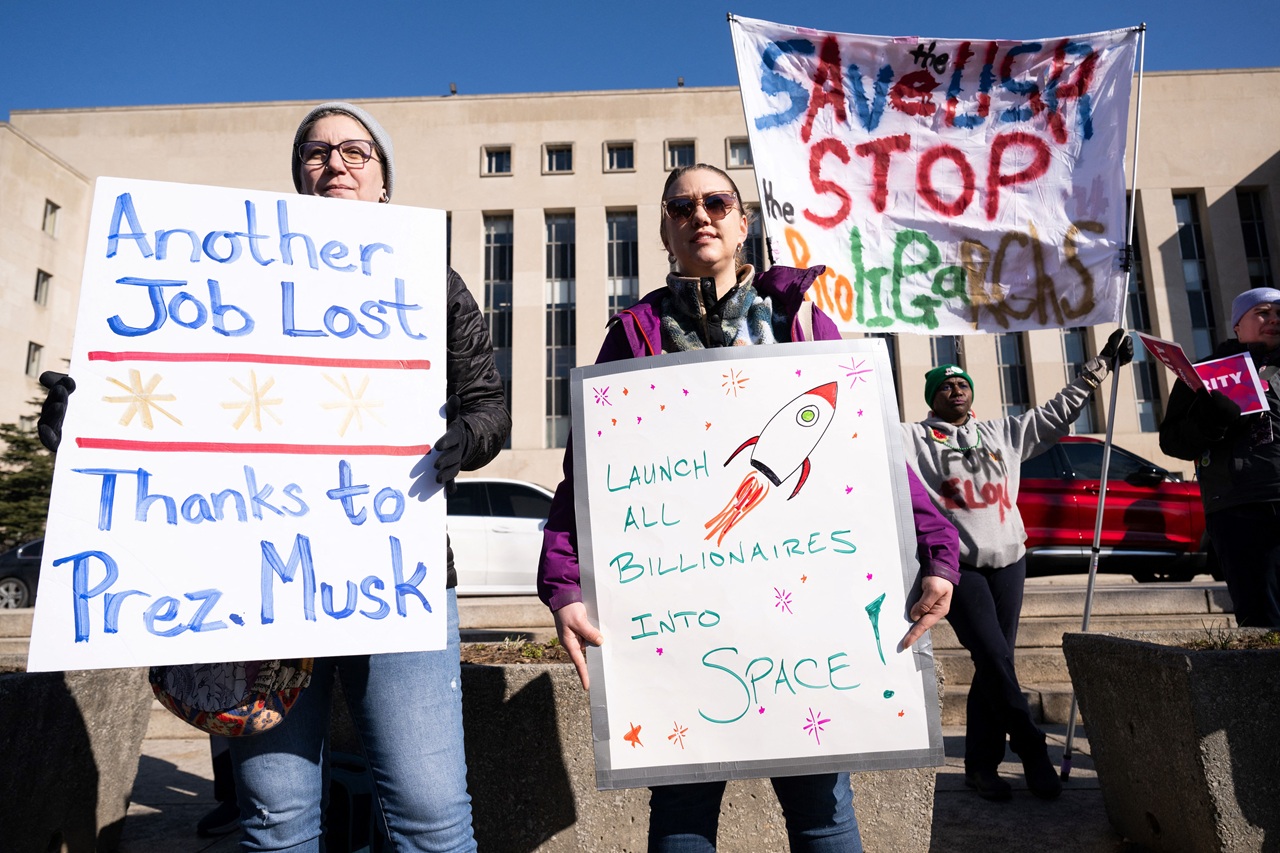
Philadelphia and the country holds vigils to honor the Asian American victims of Atlanta’s spa attacks
Atlanta police may not have called it racially-motivated yet, but the country feels otherwise.
Given our history, the United States may have to go through several periods of a racial reckoning. Throughout the Summer of 2020, many people were faced with a brutal reality check about their own racist tendencies, and hit the streets in protest of anti-Black police violence.
But since the start of the pandemic, hate crimes against Asian Americans and Pacific Islanders have skyrocketed, but until very recently, these atrocities haven’t been getting the attention and outrage they deserve.
President Biden and Vice President Kamala Harris have spoken out against this wave of hate crimes with a sense of dismay and urgency.
Biden took to Twitter last night to denounce the violence, and stated that the displays of hatred against this community are “un-American.”
The statement was well-intentioned, but flawed — these acts of racial violence are fundamentally American. Countless Twitter users took issue with his words and directly replied to him, calling out the ignorance.
“Saying that this is ‘un-American’ is just tone deaf. From the Chinese Exclusion Act laws to internment camps, to the former President calling it [the coronavirus] the Kung-flu, this is one of the most American things I can think of,” one user wrote.
Hundreds of AAPI’s turned to social media to voice their rage, anxiety, desperation and hopelessness, and allies did their best to spread awareness, donate to organizations and send their love and condolences with the communities affected.
The hashtag #StopAsianHate was a top trending topic on Twitter for hours after the Atlanta shootings occurred on the night of Tuesday, March 16.
Asian Americans have faced a relentless increase in attacks throughout the #COVID19 pandemic. We ask everyone to remember that hurtful words and rhetoric have real life consequences. Please stand up, condemn this violence, and help us #StopAsianHate.
— Rep. Ted Lieu (@RepTedLieu) March 18, 2021
Aisha Yaqoob Mahmood, executive director of the Atlanta-based Asian American Advocacy Fund, shed some light on why AAPI’s are feeling this sense of anguish.
“I think the reason why people are feeling so hopeless is because Asian Americans have been ringing the bell on this issue for so long… we’ve been raising the red flag,” she said.
Many were also outraged that the suspect, 21-year-old Robert Aaron Long, was not immediately charged with hate crimes of racism and misogyny. In fact, the jury is still out among Atlanta law enforcement on whether or not the crime was racially motivated.
Authorities said that Long claimed that his actions were not motivated by race; but rather a result of his “sex addiction.”
The Twitter universe went wild at this absurdity. Many advocates and Asian American women brought attention to the hypersexualization and fetishization of Asian women that makes them targets for violence.
The hypersexualization of Asian women plays a HUGE part in the violence we face. I've been cornered on the street as men say "me love you long time." I've been offered money for a "happy ending massage." I've been hit on because I'm Asian and told it's a "compliment."
— Christine Liwag Dixon (@cmliwagdixon) March 17, 2021
But one statement in particular angered just about everyone, came from Captain Jay Baker of the Cherokee County Sheriff’s Department. Baker’s remarks appeared to be an attempt to justify the suspect’s actions, and offered more empathy to the suspect than to the victims.
“It was a really bad day for him,” he uttered, and with those words he shook an entire community and their allies.
Social media is a great tool for activism, but many people felt it was necessary to mourn in person and honor the lives of those lost to this senseless violence. Of those identified from the first of three shootings at Young’s Asian Massage Spa are: Xiaojie Tan, Daoyou Feng, Delaina Ashley Yaun Gonzalez, and Paul Andre Michels.
All over the country, from Phoenix to Philadelphia, Asian American organizations put together events with the intention of demonstrating unity and strength.
On Wednesday night, Asian Americans United, the Asian Pacific Islander Political Alliance and several other partners, held a vigil in Philadelphia’s Chinatown neighborhood.
100+ people gathered in Chinatown for a vigil honoring the 8 people killed in the Atlanta spa shootings, including 6 women of Asian descent.
— Max M. Marin (@MaxMMarin) March 17, 2021
It opens with a prayer, attendees carrying hand-drawn signs that list names of victims, “white supremacy is the virus” and
“stop femicide” pic.twitter.com/caJHJBXiF1
While law enforcement is still hesitant to firmly state that the suspect’s motive was racially motivated, Philadelphia’s Asian and Pacific Islander communities have no such reluctance to call it what it is.
RELATED CONTENT
Mel Lee, director of the Woori Center, was one of the speakers at Philadelphia’s Chinatown vigil. The Woori Center, established in the early 1990s, is a network of Korean Americans in greater Philadelphia that organizes community members towards social, racial and economic justice.
“Asian Americans are the fastest growing racial group and electorate. We are proud to activate our community this election and towards justice for all, driver licenses for all, and #citizenship4all!” -Mel Lee, Woori Center director, w/ @nakasec pic.twitter.com/IMUUpqhLpA
— Woori Center (@WooriCenter) November 5, 2020
Standing before a candlelit crowd, Lee found herself brought to tears as she talked about her daughter facing threats of violence.
“What happened in Atlanta could happen anywhere, even here in Chinatown,” she said. “We know this is not a separate attack, but something that follows a long history of violence against Asian Americans.”
More than 100 people gathered in Center City to mourn the loss of the eight people killed in the Atlanta spa shootings. Vigil attendees held signs with messages like “stop femicide,” and “white supremacy is the real virus,” as community leaders spoke over the noise of Vine Street Expressway traffic.
Philadelphia Councilmember Helen Gym made an appearance at the vigil and condemned the targeted violence.
Gym called the shootings “‘the latest escalation in the nation’s history of systemic racism and violence against Asian immigrants, fostered by a culture of white supremacy and misogyny that has long devalued the lives of immigrants, Black women and women of color.’”
We have been here in this city, working alongside communities of color, against white supremacy, hate, misogyny, and the capitalist and imperialist mentality that exploits our divisions and drives us all down. Community. Solidarity. History. This is how we #StopAAPIHate. pic.twitter.com/07iDklxwlq
— Helen Gym (@HelenGymPHL) March 18, 2021
Philadelphia’s reports of anti-AAPI hate crimes tripled between 2019 and 2020, leaving the Asian American community traumatized and in a constant state of worry. This fear has led some of the 120,000 Asian residents, particularly those of East and Southeast Asian descent, to avoid public transportation, walking alone, and going out at night.
John Chin, executive director of the Philadelphia Chinatown Development Corporation explained that this fear of discrimination existed at the beginning of the pandemic, but the recent onslaught of triggering videos has really “struck a nerve” for many community members.
As others begin to feel hopeful about the increase in vaccinations and the loosening of COVID-19 restrictions, many Asian Americans in the area are concerned about what it will be like for them to return to restaurants and other public spaces.
With so many harboring xenophobia in their hearts towards people of their ethnic groups, many are afraid of being targeted.
“Just like many Americans, we look forward to the opening-up,” said Qunbin Xiong, principal of the Main Line Chinese Culture Center. “But for the Asian American community, the opening up has become a factor of anxiety, because we don’t know what’s waiting for us.”
It’s time once again for Americans to face the reality of our history of violence towards Asian Americans, and stand with them in tangible and meaningful ways to keep them protected as the city opens up more and more.











LEAVE A COMMENT: